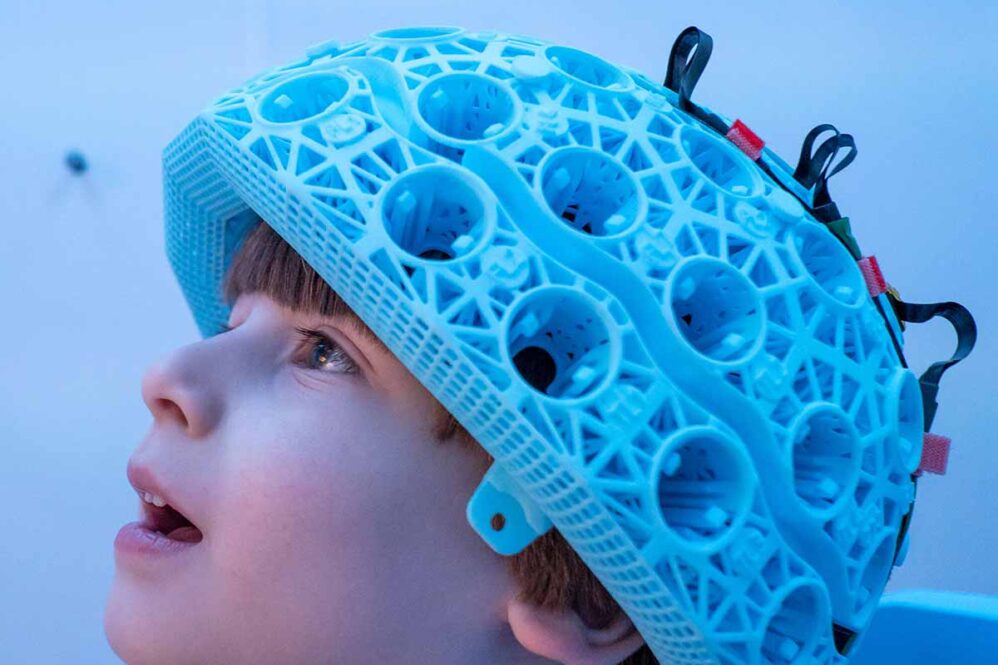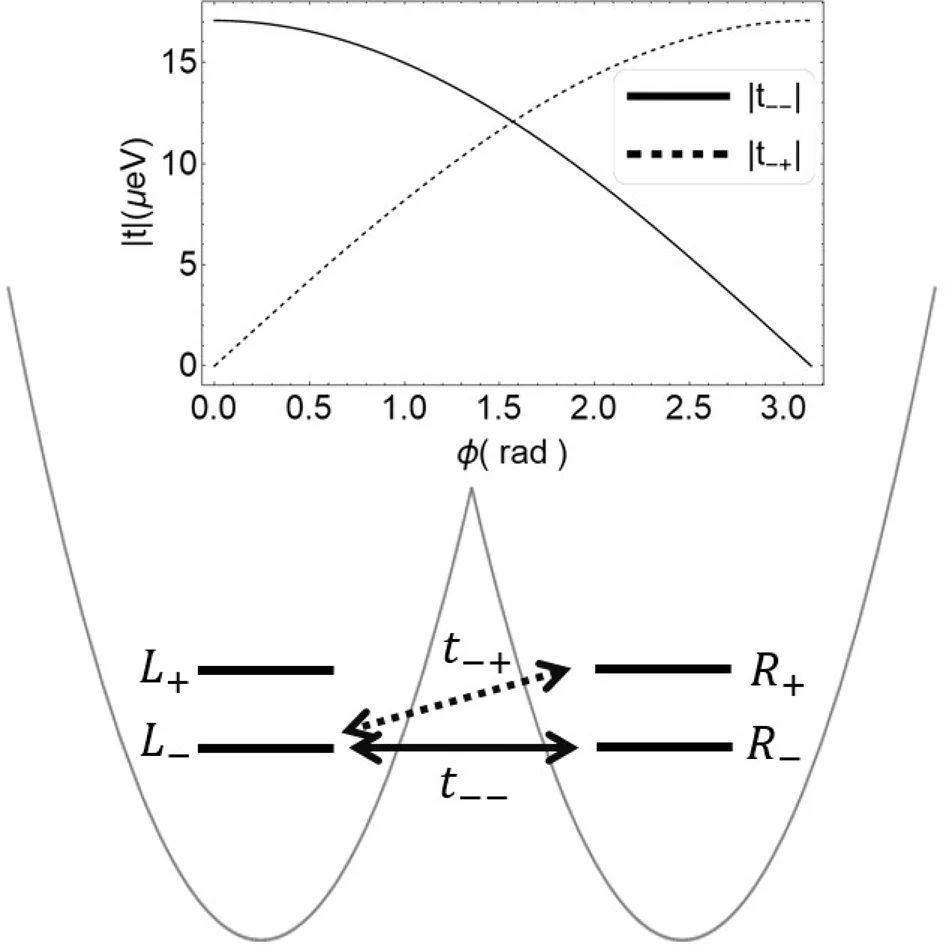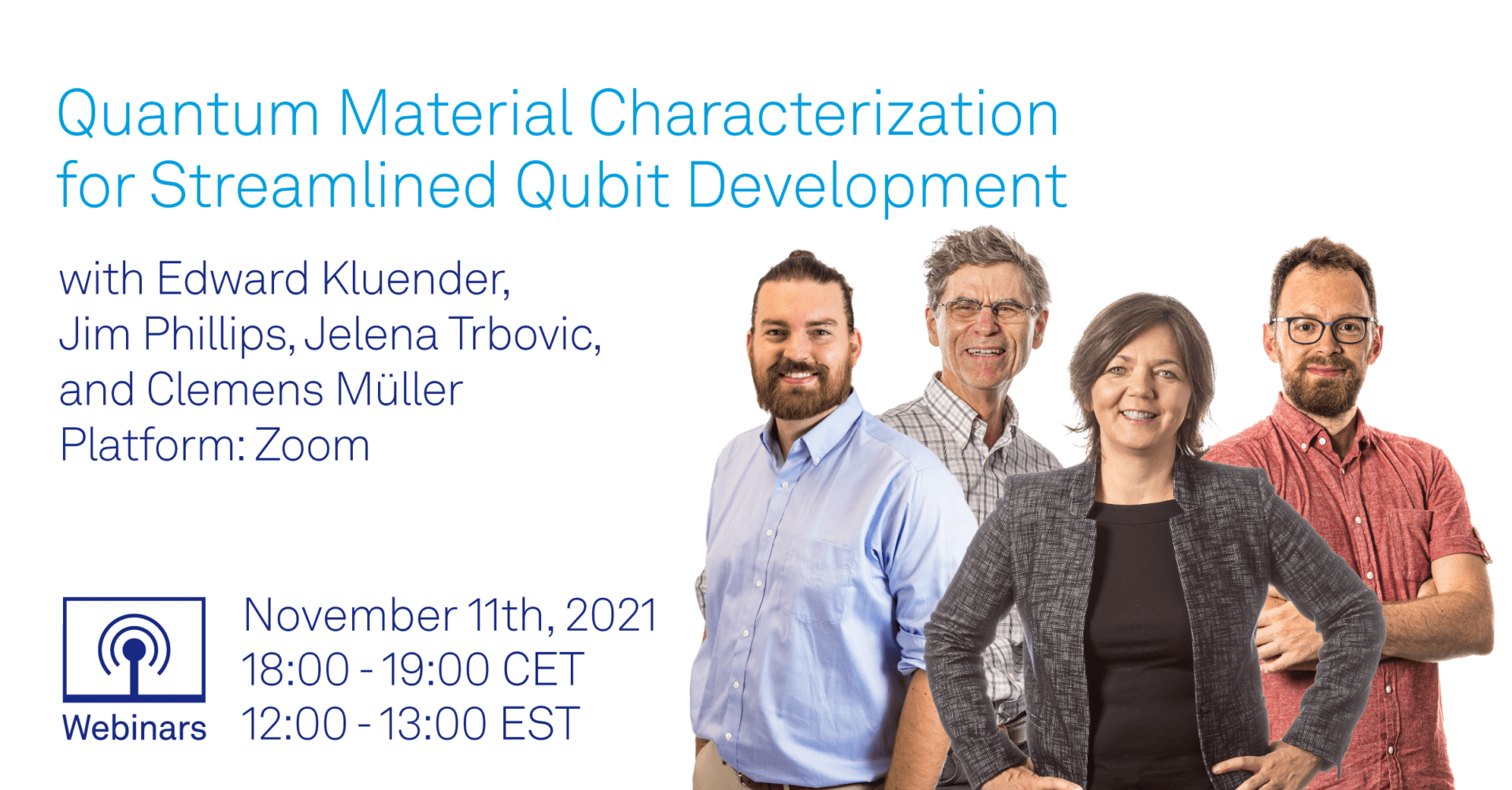A wearable brain scanner is being used, for the first time, to investigate the brain activity in elderly people whilst driving a car.
Research led by the University of Nottingham and funded by the UK Quantum Technology Hub Sensors and Timing will explore how neural substrates underling cognitive processing whilst driving change with age.
Maintaining quality of life for elderly people is an increasing concern given the UK’s ageing population and the findings from this study could enable a new understanding of neural processing, which in turn will enable elderly people to receive the necessary therapies and interventions to help them maintain their driving abilities, and therefore their independence, for longer.
This project will use brain imaging technology developed at the University of Nottingham known as OPM-MEG, which has recently been commercialised by Nottingham spin-out company Cerca Magnetics Limited. This system is lightweight, wearable, and can be held close to the scalp using a helmet-style design, allowing for significantly better sensitivity and spatial resolution than current imaging technologies.
This device will be used to provide highly accurate, real-time brain imaging for a group of volunteers, who will be asked to navigate a realistic driving simulator through an urban setting with multiple hazards. This will allow researchers to analyse the ‘detect and response’ reactions from the resulting data. Recent evidence has shown that although elderly people exhibit a decline in driving ability, they also demonstrate increased mental effort to mitigate losses in performance. This project will, for the first time, shed light on the neural underpinnings of visual search in driving and study how cognitive training impacts brain responses as well as performance.
Dr Matias Ison, project partner at the School of Psychology, University of Nottingham
Similar to many other countries, the UK has an aging population. According to the Office for National Statistics, there are around 1.6 million people over the age of 85, and this age group is set to double in size by 2041 and triple by 2066.
The Driving Vehicle Licensing Agency report that there are around 4.5 million UK motorists over the age of 70. In 2015, 17,000 of these motorists were deemed unfit to drive. Little is known about how neural substrates decline in old age, and this knowledge would pave the way for training and interventions, enabling elderly people to maintain their independence for longer.
Professor Matthew Brookes, Hub researcher at the University of Nottingham
Dr Simon Bennett, Director at the UK Quantum Technology Hub Sensors and Timing
The innovative quantum brain imaging technology developed by Hub researchers opens up many different opportunities to explore the human brain in real-time and in real-world environments. This ground-breaking project represents the first step on the path towards a new generation of neuroscientific performance.
More information is available from Professor Matthew Brookes at the University of Nottinghammatthew.brookes@nottingham.ac.uk or Jane Icke, Media Relations Manager for the Faculty of Science at the University of Nottingham, on +44 (0)115 951 5751, jane.icke@nottingham.ac.uk
Notes to editors
About the University of Nottingham:
The University of Nottingham is a research-intensive university with a proud heritage, consistently ranked among the world’s top 100. Studying at the University of Nottingham is a life-changing experience and we pride ourselves on unlocking the potential of our students. We have a pioneering spirit, expressed in the vision of our founder Sir Jesse Boot, which has seen us lead the way in establishing campuses in China and Malaysia – part of a globally connected network of education, research and industrial engagement. The University’s state-of-the-art facilities and inclusive and disability sport provision is reflected in its status as The Times and Sunday Times Good University Guide 2021 Sports University of the Year. We are ranked eighth for research power in the UK according to REF 2014. We have six beacons of research excellence helping to transform lives and change the world; we are also a major employer and industry partner – locally and globally. Alongside Nottingham Trent University, we lead the Universities for Nottingham initiative, a pioneering collaboration which brings together the combined strength and civic missions of Nottingham’s two world-class universities and is working with local communities and partners to aid recovery and renewal following the COVID-19 pandemic.
About Cerca Magnetics Limited:
Cerca Magnetics Limited is a joint venture between Magnetic Shields Limited and The University of Nottingham.
Cerca’s team brings together experienced business leadership with world-leading scientists, facilitating the commercialisation of UoN’s and MSL’s pioneering research and intellectual property related to the use of OPM sensors for biomagnetic imaging.
About the UK Quantum Technology Hub Sensors and Timing:
The UK Quantum Technology Hub Sensors and Timing (led by the University of Birmingham) brings together experts from Physics and Engineering from the Universities of Birmingham, Glasgow, Imperial, Nottingham, Southampton, Strathclyde and Sussex, NPL, the British Geological Survey and over 70 industry partners. The Hub has over 100 projects, valued at approximately £100 million, and has 17 patent applications.
The UK Quantum Technology Hub Sensors and Timing is part of the National Quantum Technologies Programme (NQTP), which was established in 2014 and has EPSRC, IUK, STFC, MOD, NPL, BEIS, and GCHQ as partners. Four Quantum Technology Hubs were set up at the outset, each focussing on specific application areas with anticipated societal and economic impact. The Commercialising Quantum Technologies Challenge (funded by the Industrial Strategy Challenge Fund) is part of the NQTP and was launched to accelerate the development of quantum enabled products and services, removing barriers to productivity and competitiveness. The NQTP is set to invest £1B of public and private sector funds over its ten-year lifetime.
The post Wearable brain scanner project to examine elderly drivers appeared first on Quantum Sensors.




